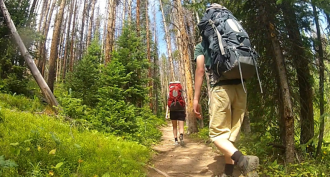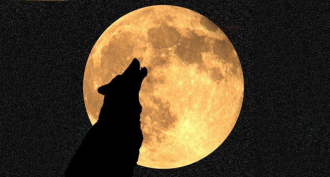
Stephen Ornes has been writing for Science News Explores since 2008, and his 2014 story "Where Will Lightning Strike?" won an AAAS/Kavli Gold Award. He lives in Nashville, Tenn., and he has three children, who are inventing their own language. His family has a cat, six chickens, and two rabbits, but he secretly thinks hagfish are the most fascinating animals. Stephen has written two books. One is a biography of mathematician Sophie Germain, who was born during the French Revolution. The other, which was published in 2019, features art inspired by math. Visit him online at stephenornes.com.

All Stories by Stephen Ornes
-
 Physics
PhysicsBaseball: From pitch to hits
Radar or cameras track the path of virtually every baseball in major league stadiums.
-
 Space
SpaceFeasting black hole
A huge gas cloud is being stretched, shredded and destroyed by the black hole at the center of the Milky Way.
-

-
 Brain
BrainNature resets body’s clock
After a week in the wild, people went to bed — and got up — earlier.
-
 Tech
TechSniffing for cancer
New surgical tool offers surgeons speedier diagnosis of tissues that are cancerous.
-
 Brain
BrainFull moon shortchanges sleep
Lab experiments show people’s sleep suffers for a day or so every month.
-
 Earth
EarthFracking waste and quakes
Underground storage of liquid waste from these mining operations can make an area more vulnerable to tremors.
-

-

-
 Tech
TechPerfect reflections
Physicists have built a mirror that Snow White’s wicked stepmother would certainly not appreciate. It offers a perfect reflection.
-
 Microbes
MicrobesThe power of microbes
A living animal is never alone. Its body — like yours — is home to trillions of microbes, or tiny single-celled organisms. Those microbes aren’t just hitchhiking. They can play an important role in separating species, researchers now report.
-
